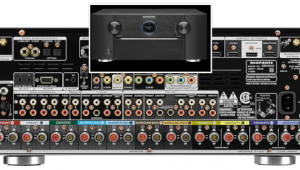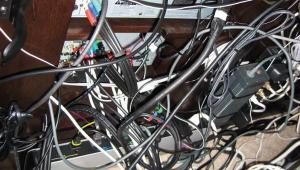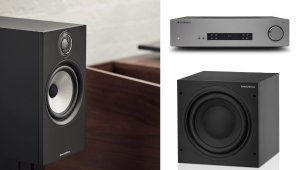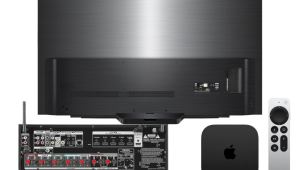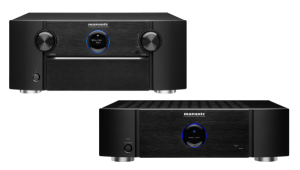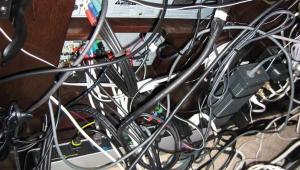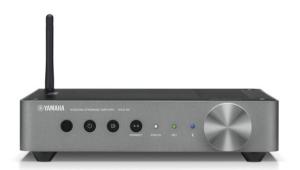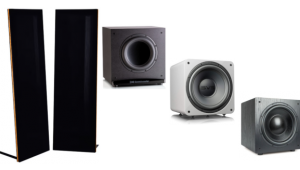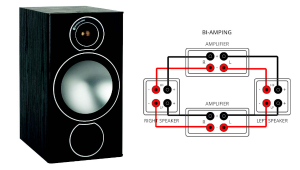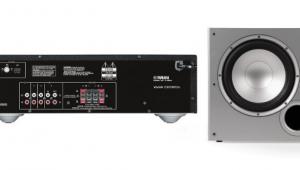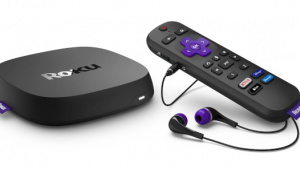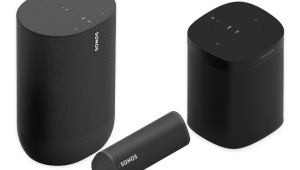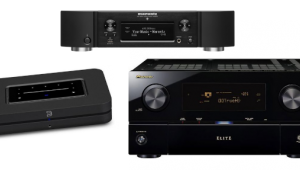Scott,
Are the different 3D Televisions cross-compatible with current console 3D gaming technologies? I had been underwhelmed with the 3D demos I've seen due to the cardboard cutout-like experience.....that is, until I saw a PS3 3D demo of some racing game. Being able to look into the screen and accurately judge distances made me feel like I was sitting right on the hood of the car. Are Samsung and LG's 3D TVs compatible with the 3D format of PS3, and what about the XBox 360?
3D Wars, Roku Controversy, 3D TVs

Have you read Walter Murch's thoughts about 3D in Roger Ebert's blog? While I don't pretend to understand all the tech jargon involved, I would like to know if Murch's points are sound.
Jeffrey McQuillen
Indeed I have; in fact, I've already written about this on UltimateAVmag.com. I tend to think that Murch's point about the disparity between focus and convergence when watching stereoscopic 3D is sound, though there are those who disagree. For example, Scott Hettrick of HollywoodinHiDef.com and 3DHollywood.net had this to say in his response to Ebert's post:
"I'm not even sure if this is, in fact, as big of a challenge for our eyes as Murch suggests—certainly many of the people who commented on your posting disagree. But the bigger point to me relative to your ongoing protesting of 3D is why neither of you makes the same point about human eyes not being designed to watch hours of images on a flat two-dimensional cinema screen or TV sets or in printed books and magazines. That's probably not what our eyes were designed to do either.
"In fact, our eyes were designed to view the world in true three-dimension.
"Mr. Murch raises an interesting argument for medical and science experts to consider, but in the meantime it seems you are not applying the logic of your anti-3D arguments to any other technology. If you want to leave entertainment to the mind's eye of the audience, if you want to ensure that people view only those things for which the human eye was designed, you should be arguing for the elimination of cinema altogether."
Frankly, I find Hettrick's argument somewhat disingenuous. In the case of 2D movies and TV as well as reading, the eyes are focused and converged at the same distance, so this is not at all similar to stereoscopic 3D.
In Daniel Engber's response on Slate.com, he thinks it's matter of getting used to 3D imagery:
"This is a reasonable point, and it may represent a real challenge for 3-D filmmakers. I've given my own accounting in Slate: In "The Problem With 3-D," I wondered if the unnatural eye movements provoked by stereo cinema might be the source of the bleary eyes, headache, and nausea that sometimes affect 3-D viewers. This wasn't an original idea, of course—the same concern had been laid out in the Atlantic (to pick just one instance) in 1953, not long after Ebert's dad took him to see Bwana Devil. All these years later, we still don't know whether the "convergence/focus issue" causes 3-D headaches, or if they arise from some other aspect of the experience. Either way, I proposed, the problem of visual discomfort would doom the new batch of digital 3-D films to the same fate as their analog forebears: The bubble will pop.
"Thing is, I've changed my mind since I wrote that piece nearly two years ago. Or maybe 3-D movies changed my brain: After watching 10 or 20 of these films since then, I've grown accustomed to the ocular aerobics, and the same format that gave me splitting headaches back in 2009 hardly bothers me now. Meanwhile, certain technical innovations, especially in animated 3-D, have begun to eliminate some of the medium's most egregious visual quirks."
Engber is fortunate that 3D "hardly bothers" him any more, but that's hardly a ringing endorsement, especially given his strong anti-Ebert position in the rest of this post. And who knows if he's unusual in that respect—maybe most people who suffer from 3D sickness don't get better with repeated viewings. Of course, those who do suffer from it probably won't watch enough 3D to get used to it, so the point is moot.
BTW, I invite all readers to take this week's poll on UltimateAVmag.com—Do You Suffer From 3D Sickness?
Ragging on Roku
I was listening to Home Theater Geeks #50 today and heard Barb Gonzalez's comments about the Roku box. I have to disagree with her assessment of the unit. I have been using a Roku XD for the last 2 months, and I absolutely love it and recommend it to all of my friends. I find the picture quality on my Roku to be outstanding.
Roger Meinert
I don't have a Roku, I don't work for Roku, and pretty much all I know about Roku is from written reviews and Leo Laporte's show. But I somehow feel Barb Gonzalez did a hatchet job when she was a guest on your podcast.
First, I was confused. Her Roku review on About.com says she was reviewing an XD. But it says she paid $59, which only buys the HD with no 802.11n or 1080p. $80 adds 802.11n and 1080p, and $100 adds dual-band 802.11n and USB ports.
My own experience with streaming video over 802.11n to an LG Blu-ray player is that the local Wi-Fi speed is really important. It works best over Ethernet, so I submit that testing a video streamer is only fair over a good Ethernet connection, because there are so many variables with Wi-Fi. We don't know if she was testing over 802.11b, g, n, or Ethernet.
My LG Blu-ray player streams Netflix beautifully when the Wi-Fi is working right. It always streams Netflix beautifully over Ethernet. But when I connected a new Mac Mini with HDMI output to the Ethernet router and my giant LED TV, the Netflix stream looked like crap. Why? Netflix "knew" it was on a computer and sent a "laptop" quality stream. By comparison, HD video from Vimeo filled the 60-inch screen with fabulous images.
Gonzalez was also offended by the complexity of logging in through the Roku to add content to the box. In the abstract, I presume the "log-in through Roku" option makes a lot of sense. It enables Roku to find new sources that agree to be streamed to its boxes and avoids the Google TV problem of providers blocking their content.
George
Gonzalez's appearance on the podcast certainly stimulated some strong comments! Here are her responses to these two e-mails:
Roger,
I have said this in many ways, and I say it here again. Many people I respect love the Roku box and rave about the quality.
When reviewing a product, I can only write about my experience, which was awful in this case. I tried to get another box from Roku or Netgear but still have not received one. If I get another box and have a different experience, I will update my review.
Still, having used so many other devices on the market, I would not rave about a Roku. It cannot play local media well, and I don't like the interface or setup.
To each his own, eh?
I hope you continue to enjoy the Roku.
George,
Thank you for reading and pointing out the inconsistencies in my About.com article. I will be sure that it is corrected.
The unit I reviewed was indeed an XD—I looked at the model number on the unit again.
I use the same home network for all devices I test. When I can take an Ethernet cable from one player, connect it to another, and see markedly superior quality from the other box, clearly the problem is not in the connection. If I get anything less than smooth, high-quality video when using a box's built-in Wi-Fi, I switch to an Ethernet cable just to make sure it isn't the connection.
With the Roku box I received, I tried many configurations because I was so surprised to have a bad experience when everyone I know has recommended it.
I really appreciate your comments about the LG Blu-ray player and the Mac Mini. The LGs I've tested have always been great. And I really want to look into the issue on the Mac Mini. A friend of mine has the same problem.
I'm sorry you feel that I did a hatchet job. I wrote my opinion, and if I liked everything, my opinion would have little value.
With the Roku box, to each his own.
BTW, be sure to check out Gonzalez's Simple Tech Guru website and her contributions to About.com.
Which 3D TV?
I have a question regarding 3D LED TVs. Which is the best one to buy, Samsung or Sony, and why? I've listened to you on Leo Laporte's radio show, and you give great advice.
robmu19
Thanks for the kind words! As for Samsung and Sony 3D TVs, I generally prefer Samsung's offerings because the Sonys tend to exhibit crosstalk or "ghosting"—each eye sees what's intended for the other—if you tilt your head even a little bit. By contrast, the Samsungs' image just gets darker as you tilt your head—not great, but better than crosstalk.
If you have a home-theater question, please send it to scott.wilkinson@sorc.com.
- Log in or register to post comments


